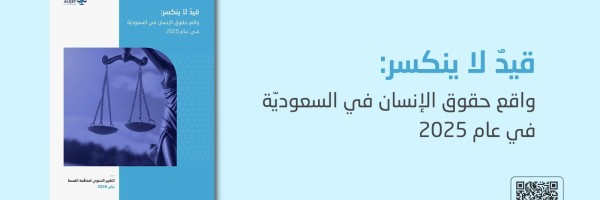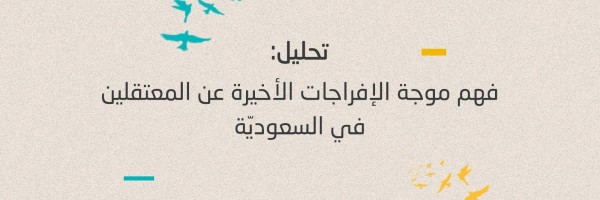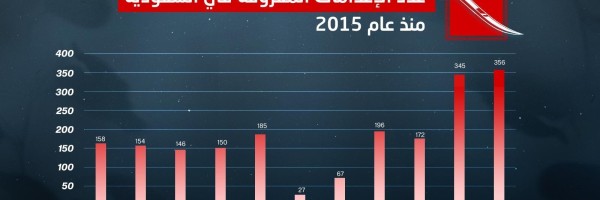Prominent human rights defender Mohammed al-Qahtani has ended his hunger strike in prison, which he started on 19 December 2020 in protest at being denied family contact, access to books and essential medication - all of which are recognised as basic rights for any prisoner. The authorities now say they will meet his demands.
No prisoner should need to resort to such drastic action to secure their rights, and even their health and well-being. Indeed, the UN Standard Minimum Rules for the Treatment of Prisoners (the “Nelson Mandela Rules”) explicitly state that the provision of health care for prisoners “is a State responsibility”; that prisoners “shall be allowed to communicate with their family and friends at regular intervals”; and that prisoners should have access to an adequate stock of reading material.
Al-Qahtani, a co-founder of the Saudi Civil and Political Rights Association (ACPRA), is serving a 10-year prison sentence in al-Ha’ir prison near Riyadh on charges relating to his peaceful human rights work. He has faced repeated harassment and ill-treatment in prison, including periods in solitary confinement and denial of family contact, and has undertaken hunger strikes before in a bid to secure his basic rights.
On 17 December 2018, al-Qahtani started a hunger strike after being placed in solitary confinement; he was released after two days. On 20 March 2019, he was transferred from the political wing of al-Ha’ir Prison to the wing holding regular criminals. The following month, he found a quantity of pharmaceutical pills as well as narcotics in the hot water urns on the wing. A number of prisoners suffered ill effects and had to be taken to hospital.
More recently, in February 2020, al-Qahtani was denied contact with his family for several days, after he was transferred from one ward to another.
Al-Qahtani’s ill-treatment is part of a pattern of harassment to which the majority of Saudi prisoners of conscience are subjected, with the authorities deliberately making life difficult for them and denying them their basic rights even behind bars. An extreme example of this pattern of ill-treatment, harassment and medical neglect was the death in detention in April 2020 of the visionary human rights defender Abdullah al-Hamid. He had suffered repeated ill-treatment by the Saudi authorities and was callously denied medical treatment including vital heart surgery. Another detainee, journalist Saleh al-Shehi, died in mysterious circumstances in July 2020, just two months after his unexpected release from prison.
ALQST calls on the Saudi authorities to fulfil their responsibilities regarding the health and safety of all detainees, and to immediately release all prisoners of conscience.




